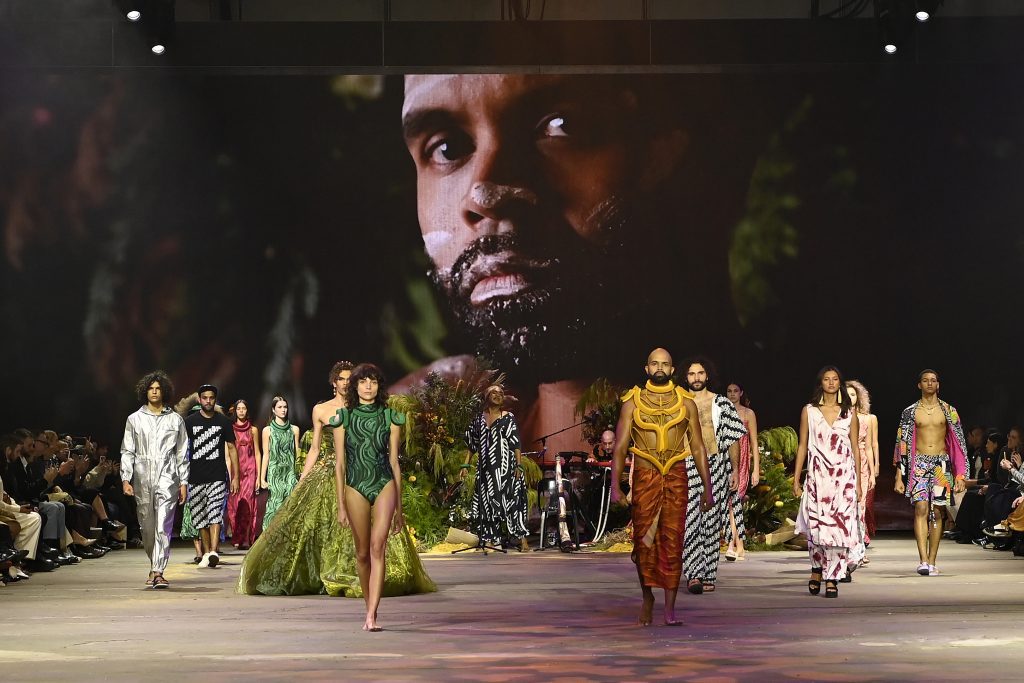Indigenous Fashion Australia
The biggest showstopper of Afterpay Australian Fashion Week was not the runway of one of Australia’s well known fashion houses, or even a brand new emerging designer. It was in fact the First Nations Fashion and Design runway held halfway through the week. After years of Indigenous designers being ignored by both the fashion industry and mainstream media, talented duo Teagan Cowlishaw and Grace Lillian Lee established the not-for-profit fashion incubator for First Nations people. Then they took it all the way to Australia’s biggest industry event! Their offering of Indigenous Fashion from Australia was bold, creative, moving and inspiring. In equal measures it was also confident, proud and joyful. Anyone who had until now looked the other way could not avoid the messaging: “Always Was Always Will Be Aboriginal Land.”
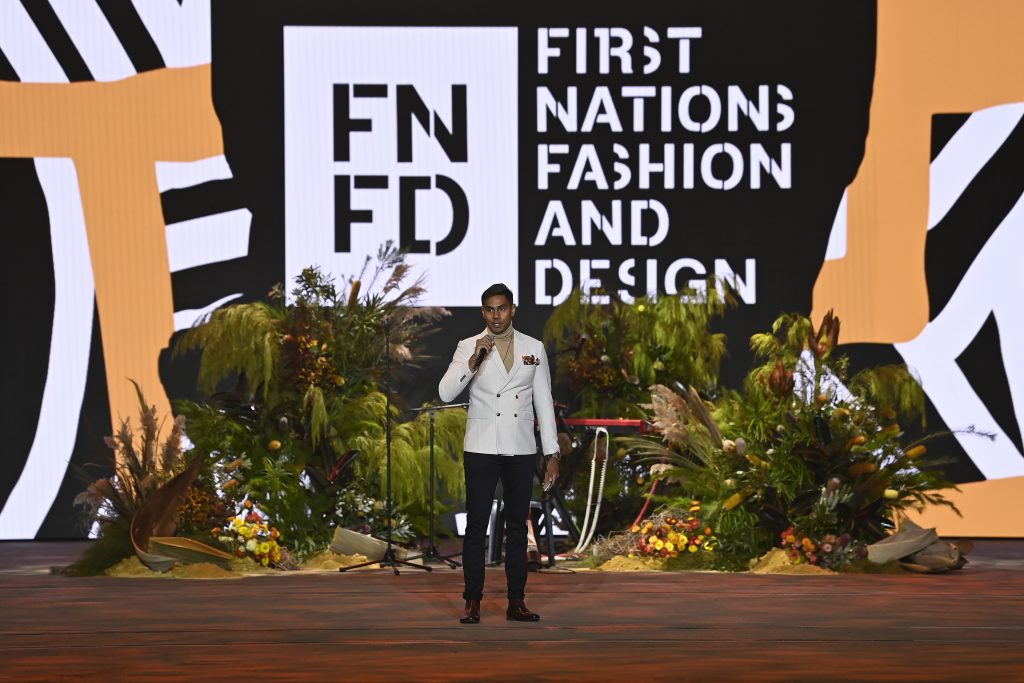
The Talent
Adding heavy hitter Yatu Widders Hunt to their board and international model Charlee Fraser to mentor emerging Aboriginal and Torres Strait Islander models, the pair assembled a talented group of indigenous creatives from many fields. Some models and performers were well known. Others were emerging. Together, the entirely First Nations ensemble designed, hosted, sang, played instruments, danced, modelled and put everything together, from the set out front to everything involved backstage.
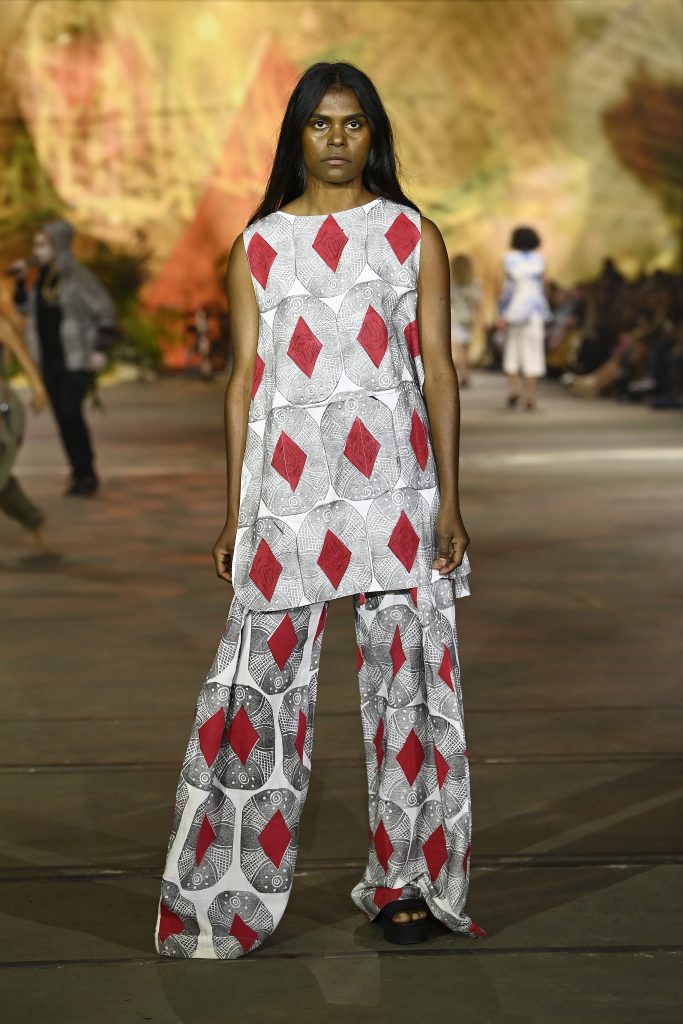
Indigenous Fashion Australia: The Designers
The main event was preceded by an introductory runway of designs by Cheryl Creed (Murrii Couture), Paul McCann, Brianna Enoch (Jarawee), Eva Nargoodah (Rukaji Designs) and Teagan Cowlishaw (AARLI). Clair Helen, Sown in Time, NGARRU MIIMI, Amber Days, Nungala Creative, AARLI and Grace Lillian Lee were featured on the main runway.
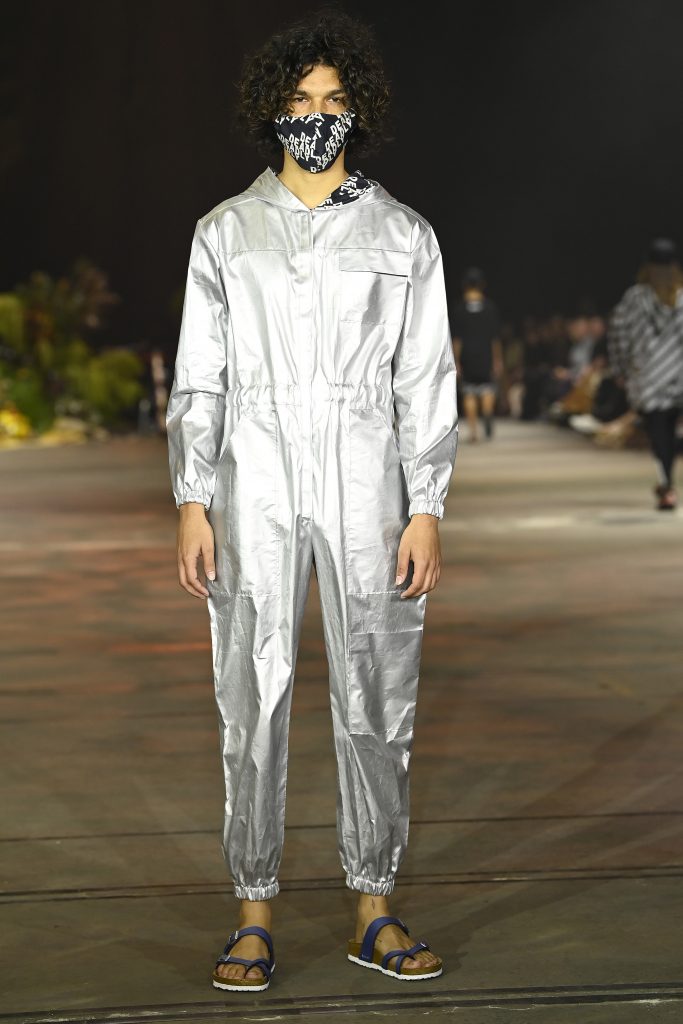
FRONT ROW
Front row guests included Aboriginal and Torres Strait Islander luminaries Sam Harris, Jessica Mauboy, Nathan McGuire, Nooky, Jojo Zaho, Rachael Hocking and Mitch Tambo, amongst others.
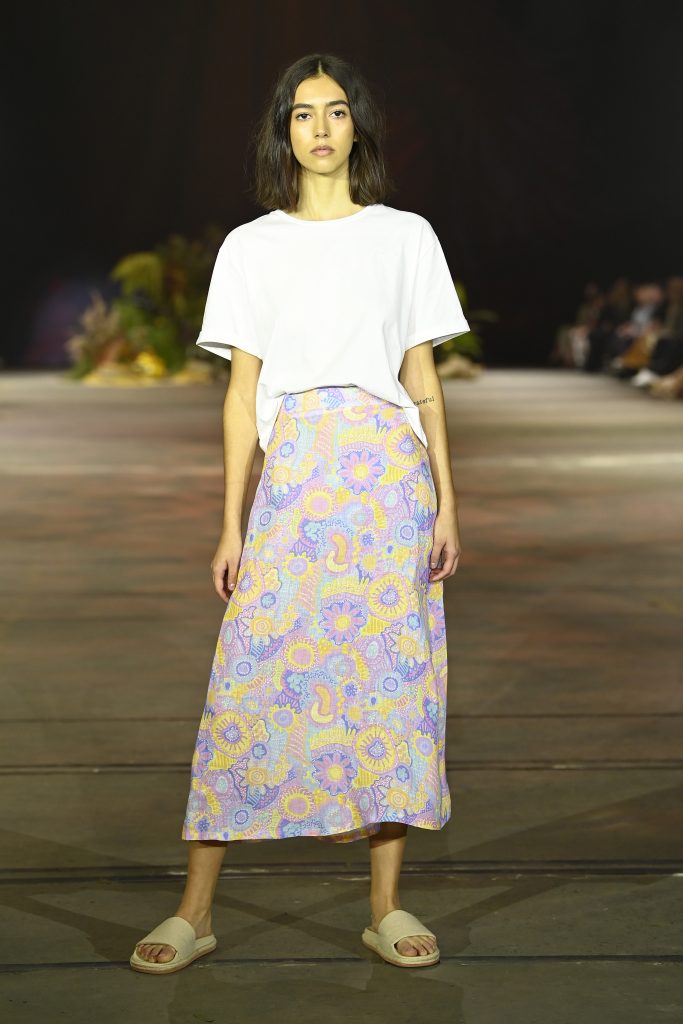
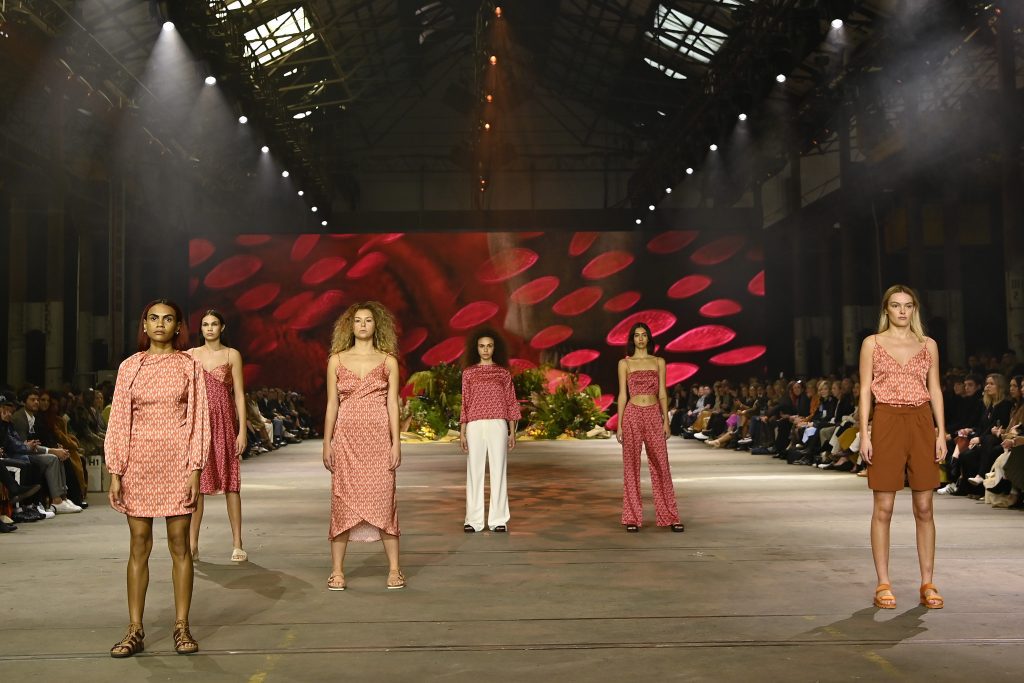
TIMING
Perfectly timed, falling during Reconciliation Week, the First Nations Fashion and Design runway also took place on the eve of Mabo Day. That was the day 29 years ago that the High Court of Australia recognised native title and finally put an end to the myth that there were no people in this country prior to colonisation (“Terra Nullius“).
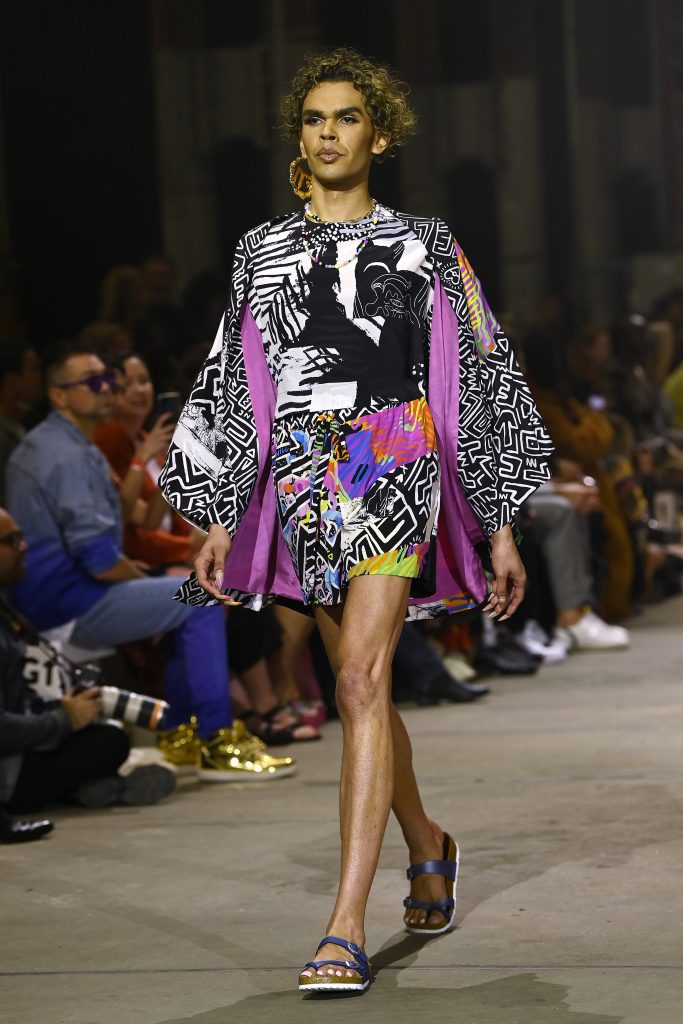
THE MESSAGE: ALWAYS WAS ALWAYS WILL BE
Host Jarron Andy opened with a powerful poem he had penned himself, ending his memorable introduction to this Indigenous fashion showcase with the words: Always Was Always Will Be…Aboriginal land.
“Although our story is one of pain and sorrow – we are still here, yesterday, today, and tomorrow. Standing tall, proud and strong – standing right here, where we belong.”
-Jarron Andy
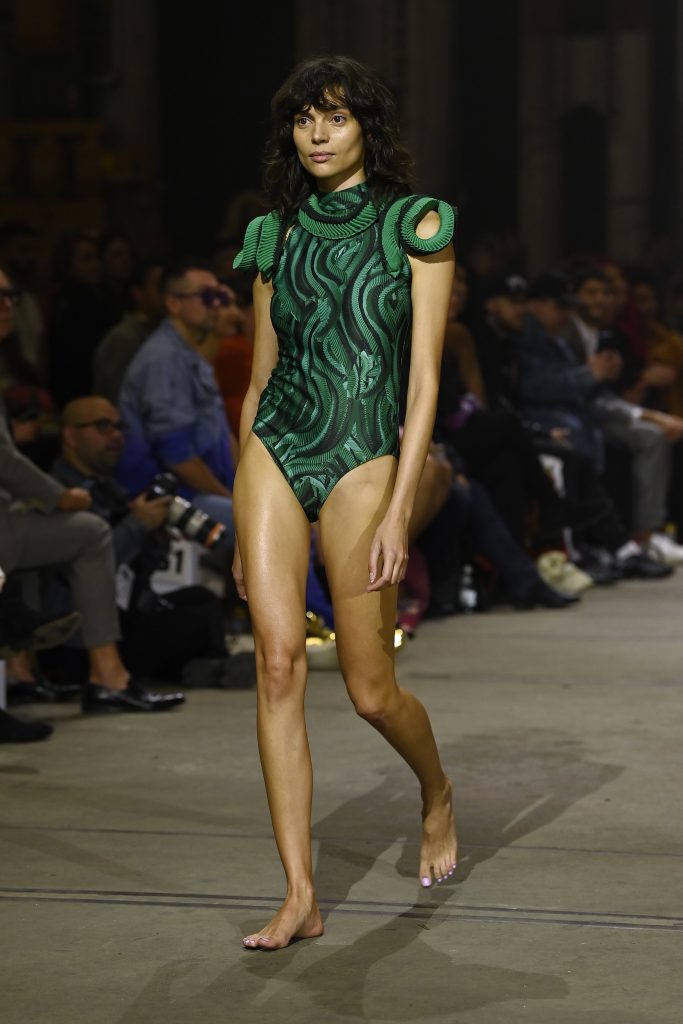
Presented to a live rendition by Electric Fields of From Little Things Big Things Grow, the finale involved models standing on stage slowly pouring sand from their clenched fists. That same gesture had been made many years before any of them had been born, by Prime Minister Gough Whitlam to Gurindji leader Vincent Lingiari, in the first ever legal transfer of land back to traditional custodians. This time, it spoke boldly of the land on which they stood never having been ceded and of promises unfulfilled.
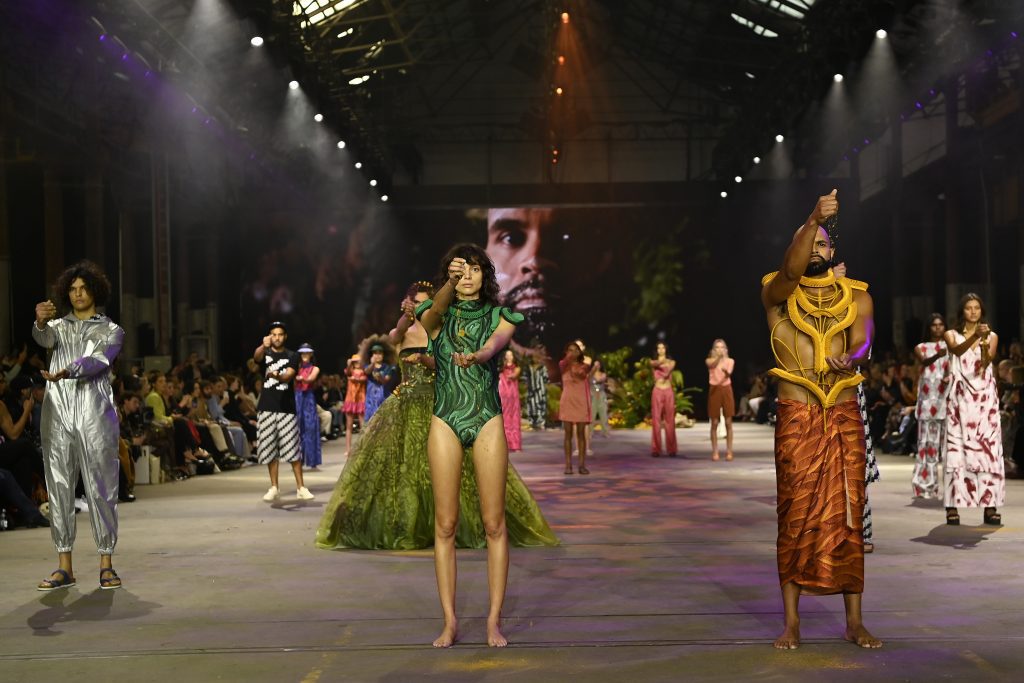
Indigenous Fashion Showcase EFFECT
A never-before-seen four-minute tear-soaked standing ovation followed.
After it was all over, television screens, newspapers, mainstream media, the internet and Instagram were flooded with images and commentary. The impressive designs on their culturally and politically evocative runway had demanded to be seen!
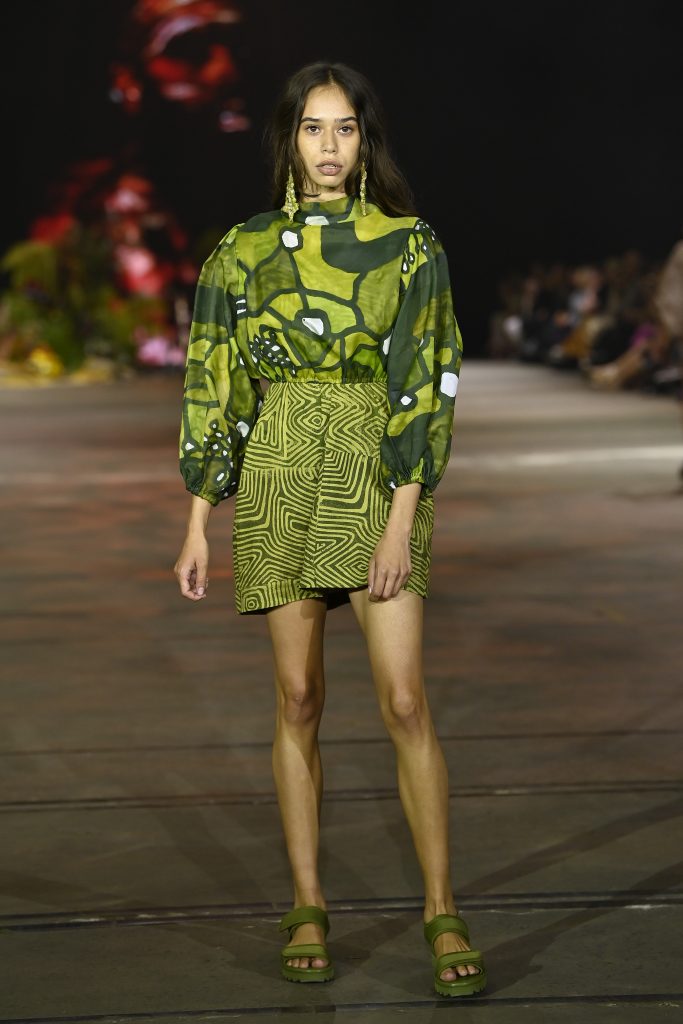
Until now, in the 25-year history of Australia’s biggest fashion event, over 70,000 years of culture and design had been “overlooked”. Not anymore.
Creating a movement that joyfully and confidently burst into Fashion Week and demanded to take its place, First Nations Fashion and Design dominated the coverage far beyond anything that Australian Fashion Week had ever seen before.
As it deserved to do.
Always Was Always Will Be
